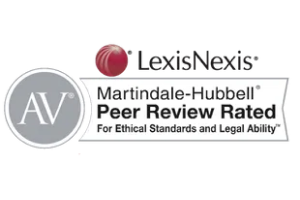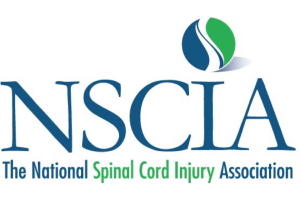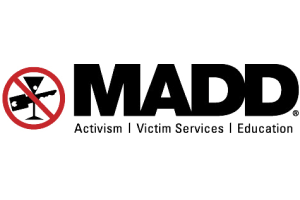Food Foreign Object Injury
Foreign Body Adulteration of Food and Drink Products
Poses a Health Hazard
Food adulteration due to the presence of a visible foreign object is a serious safety risk. Every year, thousands of American consumers are injured or sickened by a foreign body or deleterious substance which contaminates a food or drink product. There are actual documented cases of consumers finding all types of foreign contaminants in food or beverages served at a restaurant or purchased at a supermarket. Examples of foreign objects reportedly found include glass fragments, gravel, rocks, batteries, bolts, nails, buckshot, coins, needles, syringes, jewelry, toothpicks, wood splinters, plastic packaging material, staples, paperclips, wire and other pieces of metal, cigarettes, cigars, chewing gum, feces, hair, blood, human fingers, fingernails, worms, roaches, spiders, insects, rodents, bones and other parts of animals.
There can be no debate that foreign object contamination poses a very real threat to the safety of our food supply. In one study, the U.S. Food & Drug Administration found that approximately one-quarter of all food related complaints it received one year involved the presence of a visible foreign contaminant. This same study indicated that nearly 15% of the complainants had reportedly suffered an injury or illness which they attributed to the foreign material.
In certain cases, a food manufacturer, restaurant, soft drink company or other entity can be held liable for injuries or food poisoning caused by foreign objects. Any victim should consult with a food safety attorney to inquire about their legal options. The Atlanta lawyers at Ragland Law Firm, LLC are experienced in this area and are available to represent consumers who have suffered an injury or foodborne illness.
Foreign Object Contamination of Food and Beverages
Causes Injury, Choking and Food Poisoning
Foreign material in a food or beverage product poses three primary health concerns. First, while adulterated food or drink is being chewed or swallowed, hard or sharp foreign objects can cause laceration, puncture or other physical injury to someone’s teeth, jaw, tongue, perioral tissue, pharynx or esophagus. After being swallowed, the foreign body can also injure the consumer’s stomach, intestine or rectum while passing through the lower gastrointestinal tract. In rare cases, the foreign material cannot be passed and surgical intervention is required.
Second, and perhaps more concerning, foreign objects pose a serious choking hazard. Non-food material can become lodged in the consumer’s throat and result in hypoxic brain injury or asphyxia related death. The risk of choking persists even after the foreign object is swallowed because ingestion can lead to vomiting and choking can occur as the object is being expelled in the vomit. Of course, individuals can choke on both food and non-food material, so both present choking hazards. In general, choking is a significant health concern. On average in this country, choking incidents result in more than 4,000 deaths and cause 20,000 individuals to seek medical attention every year. Food and foreign objects in food are the number one cause of choking incidents. Unfortunately, children are at the highest risk for any choking hazards, including foreign objects in food or beverage products. According to the CDC, more than three-fourths of all choking episodes involved children aged 3 or younger.
Third, persons who have consumed a beverage or food product contaminated with foreign material often suffer food poisoning. Non-food objects are frequently associated with food poisoning for two reasons. To begin, material alien to the food or beverage can be the source of pathogenic bacteria such as E. coli, Salmonella, Campylobacter, Shigella or Norovirus which contaminate the food, infect the consumer, and cause a foodborne illness. In addition, foreign bodies can impede or interfere with proper cooking of the food. Because of improper cooking, infectious organisms are not adequately destroyed and they remain capable of causing the consumer to suffer food poisoning.
Pursuing Legal Claims Due to Injury or Illness
Caused by Foreign Objects in a Food or Beverage Product
Persons injured or sickened by foreign body contamination of food or drink may be entitled to assert legal claims and seek compensation from any entity whose negligence caused the adulteration or allowed it to go undetected prior to sale or service of the product to its ultimate consumer. In some circumstances, the seller of the adulterated food / beverage product can be held liable for the injured party’s damages. Depending upon the facts of the case, civil tort claims against the manufacturer, preparer or seller of an adulterated food/beverage product can be based upon various theories of liability including common law negligence, breach of implied warranty of merchantability, and strict products liability. If there is evidence of an intentional adulteration of the food or beverage with a noxious substance, then the victim may also assert claims for battery and/or intentional infliction of emotional distress.
In some circumstances, victims of injurious foreign objects can also assert civil liability claims based upon federal or state statutes that regulate the safety of our food supply and prohibit the distribution of food considered to be “adulterated.” Under various federal and state statutes, adulterated food is generally defined as any food which is unsafe, unwholesome or contains a deleterious substance which is injurious to human health. Foreign material contamination is one way a food product can be rendered “adulterated” under various federal statutory laws such as the Federal Food, Drug and Cosmetic Act (21 U.S.C. §§ 321 et seq), the Federal Meat Inspection Act (21 U.S.C. §§ 601 et seq) and/or the Poultry Products Act (21 U.S.C. §§ 451 et seq). Companies which violate these statutes by producing, distributing or selling adulterated food are subject to possible civil and criminal penalties.
Georgia has passed a similar statute, called the Georgia Food Act (O.C.G.A. §§ 26-2-20 et seq), which defines and prohibits the sale of adulterated food. The Georgia Food Act specifically defines “adulterated food” to include any food which contains a “deleterious substance which may render it injurious to health….” O.C.G.A. § 26-2-26(1). The appellate courts in Georgia have held that violations of this statute can constitute negligence per se and serve as the basis for imposing tort liability on behalf of an injured consumer. Many other states, including Tennessee, North Carolina, South Carolina and Florida, have passed similar food adulteration statutes.
Foreign Object Cases Involving Bones, Seeds, Shells or Other Natural Items
Not all food related injuries involve objects completely foreign to the food or drink product. Some occur when consumers encounter bones, seeds, shells, stems or other undesirable parts of the raw food product which are naturally occurring and normally associated with the particular type of meat, seafood, produce or other food being consumed. Historically, this distinction between “foreign” and “natural” objects was very important. Indeed, prior to the 1980’s, the courts in most states applied what is known as the “foreign-natural” test in cases involving food related injuries. Under this test, the plaintiff could not recover damages if the defect causing his injuries was a bone, seed, shell or other natural substance known to be associated with the food being consumed. This stringent “foreign-natural” rule was first adopted in 1936 by the California Supreme Court in the case of Mix v. Ingersoll Candy, 59 P.2d 144 (Cal. 1936).
However, during the last 20-30 years, the “foreign-natural” test was subjected to much criticism by judges and legal scholars. Indeed, the California Supreme Court overruled its decision in Mix and rejected the “foreign-natural” distinction in its 1992 decision of Mexicali Rose v. Superior Court, 822 P.2d 1292 (Cal. 1992). Fortunately, the appellate courts in Georgia, Alabama, Florida, Louisiana, North Carolina and many other states have also now rejected the “foreign-natural” test. Instead, they follow what is known as the “consumer reasonable expectations” test. Under this standard, whether the injurious object was foreign or natural is considered a relevant fact, but it is not the dispositive issue. Rather, the focus is upon whether the non-food material was something the consumer could reasonably expect to possibly encounter and for which caution was needed during consumption of the food or drink. For example, a consumer arguably would not reasonably expect to bite into or swallow a chicken bone while eating canned chicken soup or a product labeled as “boneless chicken.” On the other hand, a restaurant patron arguably should anticipate that he might encounter bones if he orders a T-bone steak or fresh fish for dinner. Under the “consumer reasonable expectations” test, the consumer of the soup or boneless chicken might be able to recover damages whereas the restaurant patron would likely have a more difficult time holding anyone liable for his injuries. Neither case would fail, though, because the bone is considered to be a “natural” substance normally associated with the food. Instead, the outcome of each case will depend upon various facts which impact what the consumer could or should have expected when he purchased or ordered the particular food in question.
Damages Recoverable in a Georgia Food/Beverage Foreign Object Case
If biting, chewing or swallowing a foreign object results in bodily injury or resulting illness, the consumer will be able to recover damages for his medical expenses, loss of income, and pain and suffering. In addition, injured and sickened consumers may seek to recover compensation for their non-physical damages such as the shock, fright, disgust, anxiety or emotional distress they suffered after chewing or ingesting a noxious object. However, it is important to emphasize that many states, including Georgia, will allow for the recovery of such subjective mental damages only when the victim has (1) actually consumed some or all the foreign material, and/or (2) suffered a physical injury or resulting illness caused by the foreign object. This is called the “impact rule.” States such as Georgia and Florida which continue to follow the impact rule will not allow the consumer to recover compensation solely for emotional distress or other mental harm arising merely from seeing a foreign object or becoming aware that their food or drink is/was adulterated with a noxious substance. In jurisdictions following the impact rule, recovery in a foreign object case is precluded unless the plaintiff can establish that at least some part of the foreign material was actually consumed and/or that it caused an injury or foodborne illness. The appellate courts in some states have abolished the impact rule and allow the recovery of psychological damages stemming from a consumer’s discovery of a foreign body even though there has been no physical injury or resulting illness.
What Should Be Done After Encountering Foreign Bodies
in a Food or Drink Product?
These are the steps any consumer should take after discovering that a food or drink product is adulterated with foreign material:
- Immediately alert your restaurant server – if the foreign object is encountered in a restaurant, do not remove the foreign object and keep all evidence as it existed when the object was discovered. Alert the waiter or waitress immediately and request that it be shown to a manager. Request that a written report be prepared. Keep all evidence and do not allow it to be taken from you by the restaurant.
- Get medical care – immediately seek medical attention if the foreign object is swallowed, causes injury, or leads to food poisoning. In the event of food poisoning, request that a stool sample be taken and tested to identify what pathogen has caused the foodborne infection.
- Document proof of purchase – any order, invoice, receipt, credit / debit card record or other document reflecting any information about the purchase of the product is critically important and should be obtained and kept.
- Secure physical evidence – retain and keep in a secure place all physical evidence including any of the foreign material not ingested and all packaging materials which contained the food or drink. Any perishable food evidence should be kept in a refrigerator or freezer.
- Take photographs – the foreign object(s), all packaging material, sales receipt and all other physical evidence should be photographed and/or videotaped as soon as possible. Also, any visible injuries should be photographed as well.
- Make a complaint – as soon as possible, notify the food company or restaurant which manufactured or proposed the food or beverage about the incident. Be prepared to provide complete information about the product involved, the date and location it was purchased and consumed, the foreign material discovered, and the injury or illness that was suffered.
- Notify health agencies – if the food or beverage was prepared or served at or by a restaurant, bakery, catering company or similar establishment, someone should contact and register a formal complaint with the county health department as soon as possible. If a packaged product from a food company was involved, the Georgia Department of Agriculture should be advised about the adulterated food.
- Inquire about your legal rights – contact an experienced food safety lawyer to discuss whether you have viable claims against any companies who may have legal responsibility for your injuries or foodborne illness. Do not sign any papers or give a written or recorded statement until you have consulted with an attorney.
Seek Legal Representation from an Atlanta, Georgia Food Safety Lawyer
Ragland Law Firm, LLC is a leading food safety law firm representing consumers in Georgia, Tennessee, Florida, Alabama, South Carolina and other parts of the Southeast. The firm’s Atlanta based attorneys regularly handle cases involving food poisoning, adulterated food, allergic food reactions, and injuries caused by foreign objects in a food or beverage product. Learn more about our Food Safety Case Results. If you or family member have contracted a foodborne illness, sustained injury because of a foreign object or suffered an anaphylactic food allergy reaction, we invite you to contact us to discuss your potential case. There is no fee to consult with a food safety attorney, and Ragland Law Firm, LLC is available to handle your case on a contingent fee basis if necessary.









